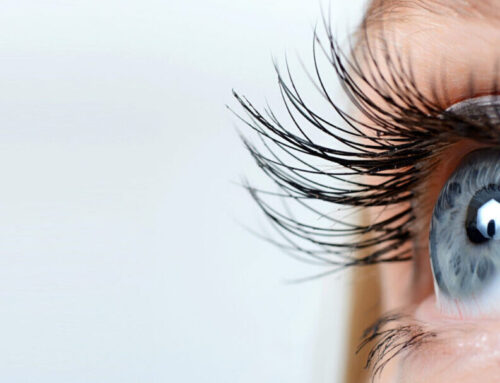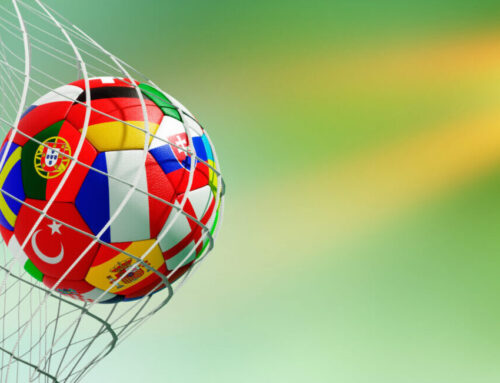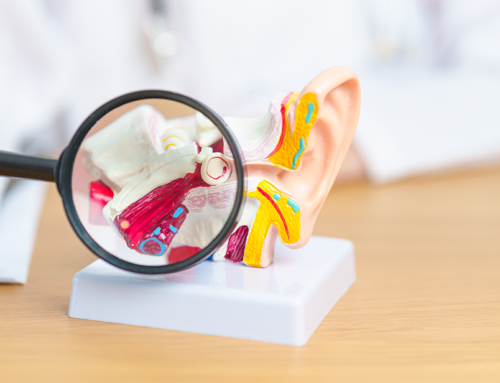Why hearing is simply indispensable for sports!
With the exception of a few sports, if you can’t hear, you are at a disadvantage in many respects. We shed light on the various aspects of why good hearing in sport is crucial for athletes, coaches and sports enthusiasts and why the ear is always involved in training.
Birgitt Valenta

Tennis, soccer, cycling, long jump, motor sports: we only need brief auditory impressions to identify these sports. We recognize characteristic sounds such as a bouncing ball of different sizes and materials, we hear footsteps and body movements, as well as the voices of the protagonists and the significant noises of the sports equipment. And we can acoustically identify the respective space in which sport is played, both indoors and outdoors.
The role of hearing in perception
Hearing is also an integral part of perception during the activity of sport itself. Athletes use their hearing to detect important information such as instructions from the coach, signals from teammates or changes in the game. In many team sports such as soccer, for example, acoustic signals can make the decisive difference between success and failure.
Another important aspect of sport is auditory scene analysis, as psychologists of perception call it, when all the sound waves that reach our ears at the same time are filtered and selected. The hierarchy of our sensory modalities has been discussed for thousands of years. Most philosophers came to the conclusion that humans are "ocular animals" and that sight is the most dominant of the senses.
Yet hearing has advantages over sight, especially for athletes: Occasionally we have to close our eyelids and we only see what is happening in our field of vision and in light. Our ears, on the other hand, if intact, cannot be closed naturally. We can also hear in the dark and can perceive and localize sound events that take place outside our field of vision.
Conclusion: hearing is at least as important as seeing
Actually, it's the combination of hearing and seeing - both together are crucial to being successful and safe in sports. Both senses complement each other and athletes should make sure to always nurture and maintain them.
Music as a source of motivation
Why does music motivate us? It makes us smile or cry, moves or motivates us - hardly anything has such a strong and varied effect on us humans as music. It is a constant and indispensable companion in all areas of our lives - including sports.
Numerous studies have shown that the right music not only motivates us during sport, but also boosts our performance. Music is therefore considered "legal doping".
Studies from Canada and Great Britain show another astonishing observation: music has measurable positive effects on lactate formation, oxygen supply and heart rate during sport.
The psychosomatic effect of music
Ultimately, however, as mentioned at the beginning, listening to music triggers emotions which in turn cause an individual change in physical condition, such as a change in posture, an increase in skin respiration or the state of tension in the muscles.
This is therefore a psychological effect to which reactions of the neurovegetative system to the sound stimuli are demonstrably linked. The neurovegetative system controls bodily processes that are not carried out by willpower but are determined by the involuntary nervous system. This effect of music can be used to increase athletic performance, for example by up to 15 percent in marathon runners!
Warming up with music
Music also has an effect before doing any sport: the arousal of positive emotions can relieve tension and control nervousness before competitions. Music is therefore mental preparation and promotes drive and enthusiasm for the upcoming sporting effort.
The last few meters with the right music
Music can keep you motivated by delaying fatigue and help you to keep going for the last few minutes, kilometers or exercises and, in the best case scenario, to really push yourself again.
Numerous studies have also shown that music significantly reduces the feeling of physical exertion. Due to the acoustic overlay of music, signals such as heavy breathing or increased heart rate are perceived less clearly. It is important for athletes not to ignore these signals so as not to overexert themselves.
Athletes have to decide for themselves which playlist is the right one. Most people will probably choose something familiar that they associate with something positive. As we automatically adapt our movements to the rhythm of the music, it is very important that the music is played at an appropriate speed: moving too slowly can slow you down, while moving too fast can lead to exhaustion.
Conclusion: music as a motivational booster
The right music is essential for sport and triggers emotions that we associate with power and strength. This increases motivation, performance and demonstrably makes us happy.
Communication as a decisive factor

Good hearing enables fast, effective verbal communication between team members on the pitch. ©Adobe Stock
In team sports, communication is a decisive factor for team success. Good hearing enables fast, effective verbal communication between team members on the pitch. Tactical instructions from the coach, warnings about opponents and quick decisions are often based on acoustic signals that improve the coordination and efficiency of the team.
The ability to perceive acoustic warnings and instructions is also crucial for preventive safety measures to prevent accidents and injuries.
Conclusion: Effective communication through good hearing
Auditory communication in sport is more than just grasping words. It encompasses the subtleties of the acoustic world that have a positive influence on team spirit, safety and success.
Listen to your surroundings

Quick and clear communication between team members can save lives. ©Adobe Stock
In addition to hearing warnings from coaches or teammates in good time, hearing is often the first alarm for potential dangers. Consciously listening to environmental sounds, especially outdoors, can protect athletes from unforeseen dangers; from approaching vehicles to natural elements such as weather changes.
Finally, quick and clear communication between team members can also be a lifesaver. Hearing calls for help or medical instructions shortens reaction times, showing that good hearing in sport not only helps to protect yourself, but also your teammates.
Conclusion: Protecting yourself and others from dangers during sport by listening
Attentive hearing is therefore a real safety tool in sport. By consciously using their sense of hearing, athletes can recognize dangers early on, avoid collisions and increase general safety on the playing field or in the sports environment.
In good balance

Targeted balance training can be optimized through the use of sound and music. ©Adobe Stock
Spatial awareness and balance play an important role in many sporting activities. The ear is not only responsible for hearing sound waves, but also for the perception of balance. The inner ear contains the vestibular organ, which registers movements and positions of the head. Precise functioning of this organ is crucial for balance during all sporting activities.
Targeted balance training can also be optimized through the use of sound and music. Athletes can focus on acoustic stimuli to improve their balance, be it through rhythmic movements or by consciously perceiving sounds during specific balance exercises.
Hearing also plays a key role in the coordination of movements. Acoustic signals can help athletes to synchronize their movements and improve the fine-tuning of muscle activity, which in turn has a positive effect on balance.
A well-balanced sense of balance is also associated with a lower susceptibility to injury. Athletes who consciously use their auditory perception can react more quickly to changes in their environment and thus avoid falls or collisions.
Conclusion: Hearing as an integral part of balance training
The close link between hearing and the sense of balance makes it clear that the sense of hearing is not only crucial for the perception of sounds, but also for physical stability in sport.
Sport & good hearing boost health
We all know it by now: those who exercise regularly live healthier lives. Sport strengthens our muscles, increases the resilience of our skeletal system, prevents heart disease and protects against obesity.
Regular exercise is also known to reduce stress. Too much stress can also have a negative impact on hearing. By reducing stress factors, sport can therefore contribute to a more pleasant hearing experience.
What's more, sporting activity strengthens the immune system, which in turn can have a positive impact on hearing health. A strong immune system helps to prevent infections of the middle ear and thus prevent hearing problems.
What many people don't know is that we also need to do something for our mental fitness. We need our hearing for this - because good hearing has been proven to protect against dementia and is therefore of immense importance into old age.
Conclusion: the healthy relationship between good hearing and sport
Good hearing not only contributes to physical fitness, but also to mental fitness. It is also worth considering sport as part of a comprehensive health concept and recognizing the importance of hearing as an integral part of this process.
6 good reasons why hearing is crucial for sports!

Doing sport together is fun - for young and old! ©Adobe Stock
- Motivation
Inspiring music or motivating words can have a positive impact on performance. Listening to music while exercising can increase motivation and improve endurance. - Communication
Communication is crucial, especially in team sports. Players need to talk to each other to plan strategies, make tactical adjustments and support each other. Listening to instructions from the coach and team members promotes effective teamwork. - Safety
In sport, it is important to listen to warning signals and instructions to avoid injury. Coaches or teammates can convey important information about dangerous situations or tactical decisions that affect the well-being and safety of athletes.
Aural awareness of environmental sounds, both indoors and outdoors, can also prevent potential dangers. - Balance
An intact sense of hearing is not only crucial for the perception of sounds, but also for physical stability in sport. In addition, good balance makes sport much more fun. - Health
Sport is healthy for body and mind - with good hearing, you can play your favorite sport more effectively and with more safety and enjoyment - making it even healthier. - Fun
Sports enthusiasts don't have to sweat themselves. For many people, watching sporting events is the number one leisure activity. What would a soccer match be without the enthusiastic roar of the crowd or a Formula 1 race without the sound of the engine?






